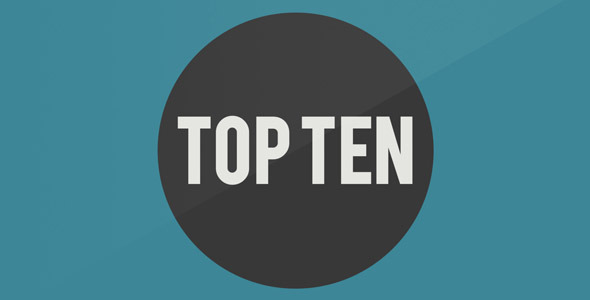Developing good habits and discipline is important when pursuing any goals, especially when it comes to those that impact your financial life. In addition to benefiting your financial bottom-line, the healthy money habits noted below may also benefit your emotional well being too. After all, limiting the stress and time spent worrying about money can allow you to focus on more meaningful things in your life.
10. Create a savings budget
Budgeting is a cornerstone for any financial plan and gaining awareness of your expenses is critical. Unfortunately, many individuals create their budget by starting with their living expenses and then saving whatever is left at the end of the month. Unfortunately, the “save whatever is left over” approach doesn’t work well because many of us have no trouble finding things to spend money  on, and often, not much is left over.
on, and often, not much is left over.
Rather than approach budgeting by starting with expenses, consider beginning your budget by starting savings – namely how much you need to save to pursue your goals. While there is no cookie cutter approach and a financial planner can help determine how much you need to save for your unique goals, the Center for Retirement Research at Boston College suggests that the typical household needs to save about 15 percent of earnings, with low income individuals requiring lower percentages and higher income individuals requiring more.
Automating this savings through transfers to cash reserves, education funds or retirement accounts before you have a chance to spend the money can be an effective approach to building savings and improving your financial plan.
9. Build a recession proof emergency fund
What size cash reserve should you have? The answer is – it depends on what contingency you are planning for. While a typical reserve of 3-6 months may be sufficient for some, households that hold jobs in more economically sensitive industries that could be impacted in an economic downturn may want to consider holding larger reserves. Additionally, households relying on only one income source may also target larger reserves.
FDIC insured savings accounts, CDs and online savings or direct banks are all popular options for reserves and shopping around online can help you uncover institutions offering higher rates. Consider visiting www.bankrate.com to determine which banks offer the most attractive rates. Additionally, setting up a laddered CD strategy may prove useful depending on future changes in rates.
8. Know your real after-tax income
Believe it or not, many workers and retirees are unaware of what their after-tax income is. Gross income is what you are paid before taxes, expenses and savings and the number most people cite as their income. The problem is that a household earning $100,000 may only have $70,000 in Net Income to apply toward their goals. Too often, households budget using the gross income and over estimate how much they really have to apply toward their lifestyle. This can result in excess expenses and lower savings rates.
7. Know how much you are spending (wasting)
 In this monthly subscription and “one click” shopping society, consumers often pile on more and more services/fees/subscriptions that can add up over time. Monthly subscriptions for streaming music, movies, and online apps in addition to TV, internet and household services create a tremendous amount of miscellaneous spending each month. Couple these costs with digital one click shopping at Amazon and other online retailers and money is flying out the door faster than the packages arrive on your door step. Bottom line – the average household wastes money on various services/spending and reeling in financial waste can help you to direct additional funds toward long term financial goals.
In this monthly subscription and “one click” shopping society, consumers often pile on more and more services/fees/subscriptions that can add up over time. Monthly subscriptions for streaming music, movies, and online apps in addition to TV, internet and household services create a tremendous amount of miscellaneous spending each month. Couple these costs with digital one click shopping at Amazon and other online retailers and money is flying out the door faster than the packages arrive on your door step. Bottom line – the average household wastes money on various services/spending and reeling in financial waste can help you to direct additional funds toward long term financial goals.
6. Cover your financial risks
The purpose of insurance is to transfer certain risks to a third party so that you might not have to bear the full responsibility if a loss were to occur. Health insurance, life insurance, disability insurance, long term care insurance, auto insurance, homeowner’s insurance, renter’s insurance and property and casualty insurance are just a few the major risks that can be transferred. Obtaining competitive coverage and protecting yourself from the curve balls that life can throw at you is important – especially if you have others that rely on you like a spouse, children or other family. Consider speaking to an independent resource to unbiasedly shop coverage to select the most appropriate option for your unique circumstances.
5. Do not buy/rent more home than you can afford
One of the single biggest mistakes people can make is to spend a disproportionately large amount on housing. Underestimating long term expenses like real estate taxes, home owners association fees, utilities, and maintenance/repairs can prove costly. Remember, purchasing or renting more house than you can afford can limit how much you have available to apply toward other goals. In fact, many people unknowingly are pushing back retirement dates simply because they purchased more house than they can really afford.
Rather than purchasing a home without knowing the impact, consider running calculations to see how much you can spend on your next home while still remaining on track for your big picture financial goals before you make the purchase.
4. Try to avoid financing depreciating assets
According to the Federal Reserve, Americans currently hold $1.07 trillion in total credit card debt, having paid banks a staggering $113 billion in credit card interest in 2018 alone. Borrowing money to finance current spending can cause long-term financial difficulties as interest expenses accumulate over time. Often you will hear financial experts talk about the difference between good debt and bad debt. Usually, good debt is a loan on an asset that has the potential to increase in value over time or enhance your net worth while a bad debt is a loan to buy something that depreciates in value over time. Where possible, try to avoid financing these depreciating assets.
3. Avoid lifestyle creep
How did you earmark the last raise or bonus you received from your employer? Did you set aside more money for financial planning goals or did you ratchet up your spending on other discretionary expenses? As income grows so does our desire to treat ourselves to pricier items and experiences. A steady increase in spending that exceeds increases in income is known as lifestyle creep or lifestyle inflation.
While the process of gradually increasing your spending as wages rise is normal, some of us increase our spending to levels that could prevent us from maintaining our lifestyle later. One effective approach to capturing a large percentage of wage increases is through the use of retirement plans such as a 401(k). For example, if you receive a 5 percent raise, consider increasing your 401(k) contribution by the amount. While this may be easier said than done, it can help accelerate your savings.
2. Avoid making financial choices with incomplete information
There is a popular adage often attributed to Benjamin Franklin “The person who fails to plan, plans to fail.” In my experience, many Americans spend more time researching the next cell phone or vehicle they are going to purchase than they do planning their financial life. This is especially surprising based upon the research that supports the benefits that planning can provide. According to a 2017 study by Fidelity, Investors with a financial plan grew their assets 110 percent compared to clients that didn’t.
Instead of making financial choices without understanding the long-term impact of your choices, consider developing a detailed financial plan as they may provide much needed clarity in this area.
1. Understanding that money is simply a tool
For many Americans, money is often a top priority in their life. It can seem to be the source of worry, fear and conflict in their lives. Not only do many people worry about running out of money, some, regardless of wealth, continue to feel like they will never have enough. The endless pursuit of more money often leads people to never feel the peace of mind they are searching for.
 Rather than approaching money in this way, it can be helpful to remember that money is simply a tool to focus on the things that really mean most to you. Consider spending time assessing the things that really have meaning instead of placing all of the meaning on money itself. This may help you to reassess your priorities as you live and experience life.
Rather than approaching money in this way, it can be helpful to remember that money is simply a tool to focus on the things that really mean most to you. Consider spending time assessing the things that really have meaning instead of placing all of the meaning on money itself. This may help you to reassess your priorities as you live and experience life.
Implementing good money habits can be a great way to help you pursue your goals. While it is often easier said than done and can require substantial discipline and will, doing so can have a positive impact on how you view your finances and your life. Since everyone’s situation is unique, consider speaking to your tax and financial advisers to determine the most appropriate approach for you.
Kurt J. Rossi, MBA, CFP®, CRPC®, AIF® is a CERTIFIED FINANCIAL PLANNERtm Practitioner & Wealth Advisor. He can be reached for questions at 732-280-7550, kurt.rossi@Independentwm.com,www.bringyourfinancestolife.com & www.Independentwm.com. LPL Financial Member FINRA/SIPC.










